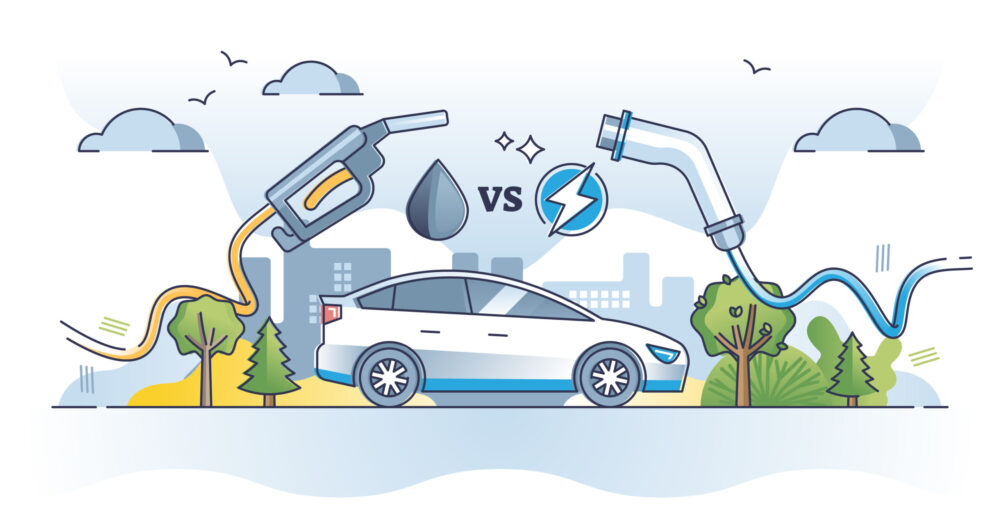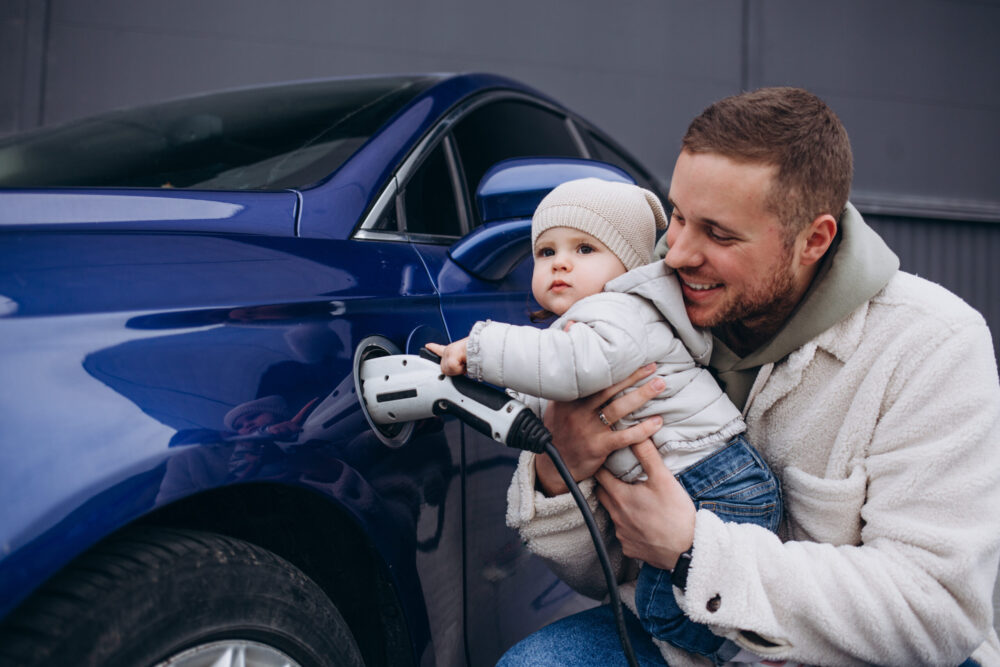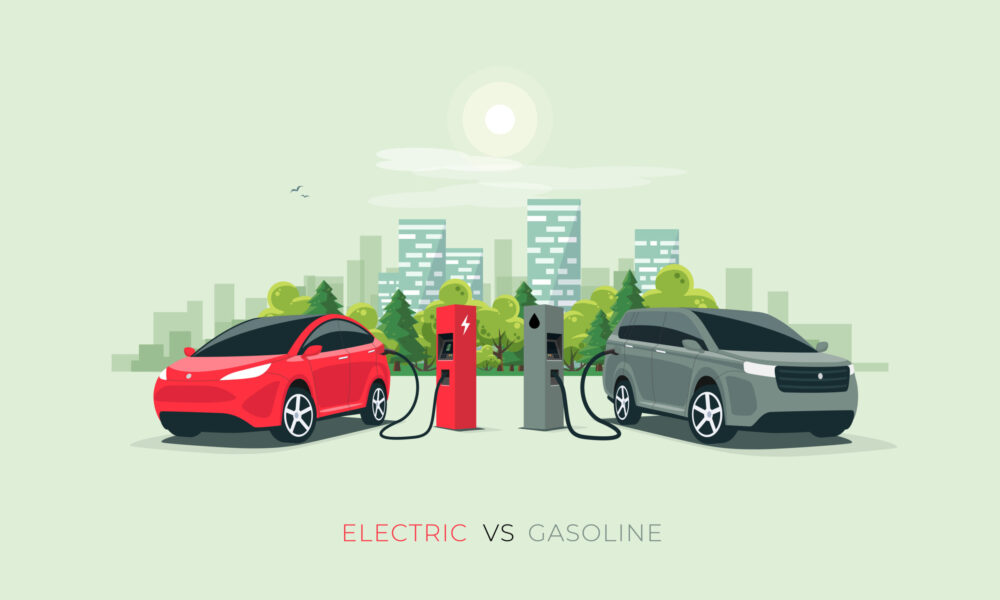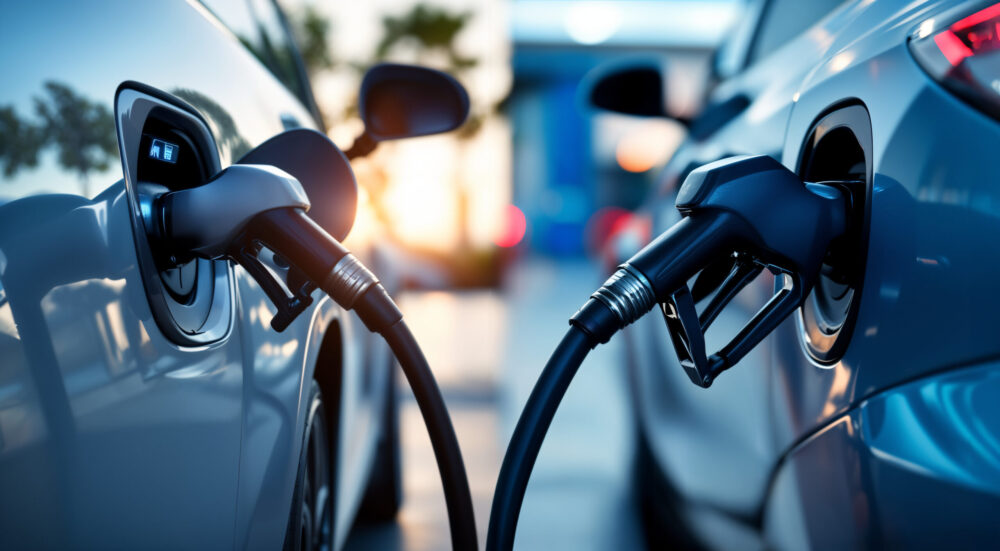Electric Vehicles vs. Gas Cars: The Battle for the Future of Driving
Electric Vehicles vs. Gas Cars: The Battle for the Future of Driving
Electric Vehicles vs. Gas Cars: The Battle for the Future of Driving
For more than a century, gasoline engines have powered our daily commutes, family road trips, and the very culture of driving itself. But a new contender — the electric vehicle (EV) — has arrived, and it’s quickly changing the automotive landscape.
While electric cars once seemed futuristic and niche, they’ve now entered the mainstream, with nearly every major automaker investing billions into electrification. Still, the debate rages on: Are EVs truly better than gas-powered cars? And what does the future of driving really look like?
The EV Revolution: Why Automakers Are Making the Shift
Just a decade ago, electric cars were viewed as experiments — short-range, expensive, and impractical for most drivers. Fast forward to today, and nearly every global automaker has announced plans to transition away from internal combustion engines (ICE) entirely within the next 10 to 20 years.
Why the shift?
Environmental regulations: Governments worldwide are tightening emissions standards and setting deadlines to phase out gas vehicles.
Consumer demand: More drivers are prioritizing sustainability, energy efficiency, and lower long-term ownership costs.
Technology improvements: Advances in battery chemistry, range, and charging speed have erased many of the early pain points.
Economic pressure: As battery production scales up, costs are falling — making EVs increasingly competitive with gas cars.
Simply put, automakers aren’t just following a trend; they’re preparing for the inevitable. The future of transportation is electric, and the industry knows it.


Electric Vehicles: The Pros and Cons
Pros
Zero tailpipe emissions: EVs dramatically reduce air pollution and carbon output.
Lower running costs: Electricity is cheaper per mile than gasoline, and EVs require less maintenance (no oil changes, fewer moving parts).
Instant torque and smooth performance: Electric motors deliver near-instant acceleration with quiet, seamless power.
Energy independence: Electricity can come from multiple sources — including renewable energy — reducing reliance on oil markets.
Future-proof technology: Software updates and advanced features (like autonomous driving) are easier to integrate into EV platforms.
Cons
Charging infrastructure: While improving, public chargers aren’t yet as widespread or fast as gas stations.
Range limitations: Even with modern batteries, long road trips still require planning.
Upfront cost: Though prices are dropping, EVs generally cost more than comparable gas cars before incentives.
Battery replacement concerns: Over time, batteries degrade — though most now last 8–12 years or longer.
Cold weather impact: Performance and range can dip in extreme temperatures.
Gasoline Vehicles: The Pros and Cons
Pros
Familiarity: Gas cars are easy to refuel, widely supported, and well-understood by mechanics.
Long range and quick refueling: Fill-ups take minutes, not hours.
Lower initial cost: Upfront prices remain lower for many models.
Better availability in rural areas: Some regions lack charging infrastructure.
Cons
Environmental impact: Gas vehicles emit CO₂, nitrogen oxides, and other pollutants.
Higher long-term maintenance: Oil changes, spark plugs, belts, and filters add up over time.
Fuel price volatility: Drivers remain vulnerable to global oil price swings.
Declining resale value: As more EVs enter the market, older gas cars are likely to depreciate faster.


Current Trends: The Road Ahead
Battery breakthroughs: Next-generation batteries promise longer ranges, faster charging, and lower costs.
Government incentives: Tax credits, rebates, and infrastructure spending continue to make EVs more accessible.
Corporate commitments: Companies like GM, Volvo, and Mercedes-Benz have announced plans to go all-electric by the 2030s.
Used EV market growth: As early models enter resale markets, affordable used EV options are becoming widely available.
Charging network expansion: Brands like Tesla, Rivian, and even gas stations are rapidly building fast-charging stations nationwide.
Why the Gas-Car Loyalists Are Fighting a Losing Battle
Despite the progress, many drivers remain fiercely loyal to combustion engines. They argue that EVs are inconvenient, expensive, and overly dependent on technology. But history shows that resistance to innovation rarely wins.
Just as the horse gave way to the automobile, and film cameras to digital, the shift to electric isn’t a matter of if — it’s when. Governments, manufacturers, and consumers are aligning toward a cleaner, more efficient future.
And with every new EV offering better range, faster charging, and lower lifetime costs, the appeal of gas vehicles continues to fade. For those holding onto the rumble of a V8 or the smell of gasoline, nostalgia may soon be the only thing left to defend.


The Bottom Line
Electric vehicles aren’t perfect — but they’re improving faster than any automotive technology in modern history. Within the next decade, EVs will likely dominate new car sales, and charging networks will be as common as gas stations.
Gasoline-powered vehicles will still have their place, particularly among enthusiasts and rural drivers, but their era as the default choice is ending. The global shift to electric isn’t just an industry trend — it’s a transformation that will define the future of driving.
The road ahead is clear, and it hums quietly. The future belongs to electric.
Customers Love What We Do!
Reviews
4.7
Over 31 Reviews
Jamie Salhus
1 month ago
Our car was picked up and delivered earlier than expected, which was a very pleasant surprise. There was 1 small hiccup with the final payment due but was cleared up with 1 phone call. This was a great experience!!!
Korir Kipkirui
2 months ago
I needed my truck transported from Bakersfield to Seattle and chose Smart Auto Move of Los Angeles after a friend recommended them. Honestly, best decision. Super friendly team, no surprises on the price, and they delivered a day early. I would use them again if necessary.
Luz Cachago
2 months ago
I shipped two cars from Chicago to California and Smart Auto Move made the whole process easy. Coordinating two vehicles can be a nightmare, but these folks handled it like nothing. Great communication, solid pricing, and both cars were delivered on time. Five stars without hesitation.
DAWSON P. MKUYU
2 months ago
I was having a hard time deciding whether to drive my car or have it shipped; ultimately, it made more sense to have it transported. Smart Auto Move handled my LA-to-Miami car shipment like total pros. They gave me upfront pricing, answered every question, and updated me throughout. My car arrived right on schedule and in perfect shape. A service all around.
arif rahman
2 months ago
I shipped my SUV from San Diego to Dallas with Smart Auto Move of Los Angeles and the whole thing was shockingly smooth. The price was fair, the communication was great, and they delivered exactly when they said they would. Easily the most stress-free transport experience I’ve ever had. Highly recommend.
Mahipal Rawat
2 months ago
I relocated from New Jersey to North Hollywood, and Smart Auto Move took care of my car transport. They kept me updated, answered every call, and delivered my car on schedule with zero issues, transparent, reliable, and great customer service.
John Guerrero
12 months ago
Great service would love to work with again.
Crystal Evans was very helpful.
Crystal Evans was very helpful.
Dr. Ashley M. Davis
2 year ago
Smart Auto Move was professional and efficient in delivering my vehicle. From scheduling the pick up to the on-time delivery, I was satisfied with the overall service. Thank you Smart Auto Move for making my auto transport seamless.
Rebecah Laros
2 year ago
Smart Auto Move was a positive experience! The payment never changed and the delivery style (inside/outside) didn't vary either which was a relief. I shipped two cars and they were picked up 3 and 4 days early which isn't a huge deal but I did have to move some plans around. Both drivers were so kind, careful, and communicative. I would fully recommend them and use them again!
Why we are the smart choice for car shipping
Credentials
We are Licensed, Bonded for vehicle shipping and registered with both the Federal Motor Carriers Safety administration & U.S Department Of Transportation & are Accredited by the Better Business Bureau
passion & Integrity
We offer our clients an individual customized approach to their order. you'll be provided a personal dedicated car shipping advisor who'll be happy to assist from the you place an order till your car delivery is completed.
Handle With Care
Our carrier car transporter network are the most seasoned in the auto transport industry so vehicles are delivered safe & undamaged. All carriers are vetted through extensive background checks .
Timely delivery
We'll get your vehicle to you where you need it, when you need it. The dispatch dept at Smart Auto Move focus on the smallest details to make your auto relocation go smooth.
